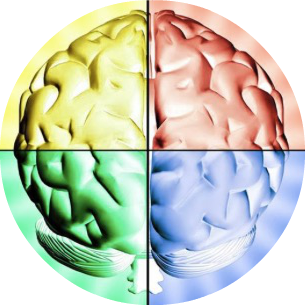5 Things Introverts Wish Job Interviewers Knew

Have you ever felt like job interviews are institutionalized discrimination against introverts? When I fill out a job application or write a resume, my introvert skills serve me well. I can research thoroughly, carefully consider an employer’s needs and how my skills might fit, and then present that information coherently. I’m often invited to interview for 4 out of every 5 jobs I apply for.
But then the interview arrives. This is when the flip-side of being a reflective introvert becomes clear. My greatest strengths can suddenly appear to be my biggest weaknesses.
The job interview may not be the fairest method of selecting a new employee, but introverts wouldn’t feel like they were being set up for failure if interviewers knew these five things:
1. A panel interview is not the best way to assess our strengths.
As introverts, we do our best work inside our heads. We’re good at planning and considering things from many different perspectives. We can concentrate for long periods of time with great attention to detail. When given time to reflect, we can thoughtfully present an idea or information in a way that others can easily grasp. Many introverts are highly conscientious, so we take the time to proofread our work. Many of us can even be perfectionists, so it’s unlikely you’ll ever hear us say, “that’ll do.” (This is exactly why there are so many great jobs for introverts out there.)
 What’s your personality type? Knowing your type can help you leverage your natural strengths. Take the free test from our partner Personality Hacker.
What’s your personality type? Knowing your type can help you leverage your natural strengths. Take the free test from our partner Personality Hacker.
Is that the kind of person you want to employ? Well, you might overlook that candidate based on their job interview performance. Interviews don’t do well in assessing these skills. The people who shine are most often the ones who feel energized in challenging social situations. For introverts, it’s overwhelming to be in a high-pressure situation like a job interview, knowingly being judged by strangers when we attribute great importance to the outcome. When over-stimulated, an introvert’s mind might shut down to the extent that it can feel difficult to string a sentence together. If you must hold panel interviews, at least let candidates know who will be interviewing them beforehand. It will help them mentally prepare.
2. We’re not shy or rude. We’re introverted.
When you first meet a candidate, you immediately make a number of assumptions about that person based on your own beliefs. We all hold beliefs about the abilities of individuals that we’re often unaware of. This unconscious bias leads to quick and inaccurate assessments. Then we continue to look for evidence that confirms our initial perceptions. In the context of a job interview, when someone has certain qualities that are indicative of a particular group of people, we may automatically attribute characteristics to him or her that are consistent with our idea of that group.
Many introverts struggle with making small talk. They don’t always come across as warm and friendly at their first meeting; sometimes it takes a while to get to know them. The first few minutes of meeting someone can be quite awkward and uncomfortable, and in these moments, the interviewer might assume a quieter candidate is shy or rude. They may imagine how this could affect their ability to do the job, when in reality, that person is actually introverted with traits that would be hugely beneficial in the role.
3. We’re reflectors, so we need time to think.
Many interviewers do not like long pauses after asking their questions. They want immediate answers. But that’s not always possible for the thoughtful introvert. We process information deeply and that slows down the rate at which information moves between areas of our brain. We also rely more on long-term memory, which can mean it’s difficult to access those “examples of a time when you…” And, when we do think of an example, quickly organizing our answer into the STAR format while feeling under scrutiny can be tricky—we’re not all that good at thinking out loud.
Personally, I’ve always felt that the distance between my brain and my mouth is farther than it is for other people. It takes a lot of effort to express myself verbally. I tend to get tongue-tied under pressure and details slip my mind. Yet, I can express myself perfectly in writing—because that’s how introverts’ brains are wired. With that in mind, please don’t judge me solely on my interview performance. Remember that awesome cover letter I wrote? And naturally, I brought my portfolio with me, if you care to look?
4. We’re smarter than you think we are.
It’s clear that we’re probably not going to be seen as fast talkers, and sadly, slower talkers are seen as less competent and likable, as Susan Cain highlights in her book Quiet: The Power of Introverts in a World That Can’t Stop Talking. In fact, an experiment conducted by Gough and Thorne in 1997 found that when interviewers rated candidates for their intelligence, the ratings did not correlate with the candidate’s IQ scores. Instead, they correlated with the person’s extroversion scores. Think about that for a moment. The more extroverted candidates appear to be smarter—but that doesn’t mean they are. It’s another unconscious bias. Employers, be mindful of that.
5. It’s time to rethink the job interview.
My message to you as an employer is this: consider what qualities you want in your next employee. For most roles, being a quick thinker and fast talker under pressure are not essential traits. Isn’t that exactly what the traditional job interview is really testing?
Think about what you could do differently. How could you give introverted candidates more opportunities to shine? Here are some ideas to help you get started:
- Set a pre-interview task, providing candidates with an opportunity to demonstrate their abilities.
- Is it necessary to ambush candidates with interview questions they have never seen before? What if candidates were given the interview questions in advance? Or, after the interview, encourage candidates to email you with additional thoughts.
- Have a relaxed, one-on-one conversation with the candidate in addition to a panel interview.
- Give candidates the option to pass on a question and return to it later. This gives introverted candidates time to think it through.
- Always take the opportunity to look at a candidate’s portfolio. There’s no better way to assess their work.
In one of the best interviews I’ve had, the lead interviewer explained the process and, to my surprise and utter delight, gave me the option to pass on a question if I couldn’t think of an answer right away. I could return to that question at a later time. Throughout the interview, he asked thoughtful questions, drawing out better, more complete, answers from me.
Afterwards, I had an honest one-on-one discussion with the interviewer. He revealed that he feels nervous when interviewing. I explained that I’m introverted and reflective, and I find the need to be fast-thinking and quick-talking in a job interview means I don’t shine so brightly. In the end, I got the job! But more importantly, I really wanted to work with these people.
Employers, Take Action!
Unintentional discrimination against introverts means you will miss out on those all-important introverted qualities that bring balance to your enterprise. What you could be interpreting as our biggest weaknesses in the traditional job interview might just turn out to be our greatest strengths on the job. It’s time to rethink the job interview—for us and for you. ![]()
Read this: Why Intuitive Introverts Need Meaningful Work
